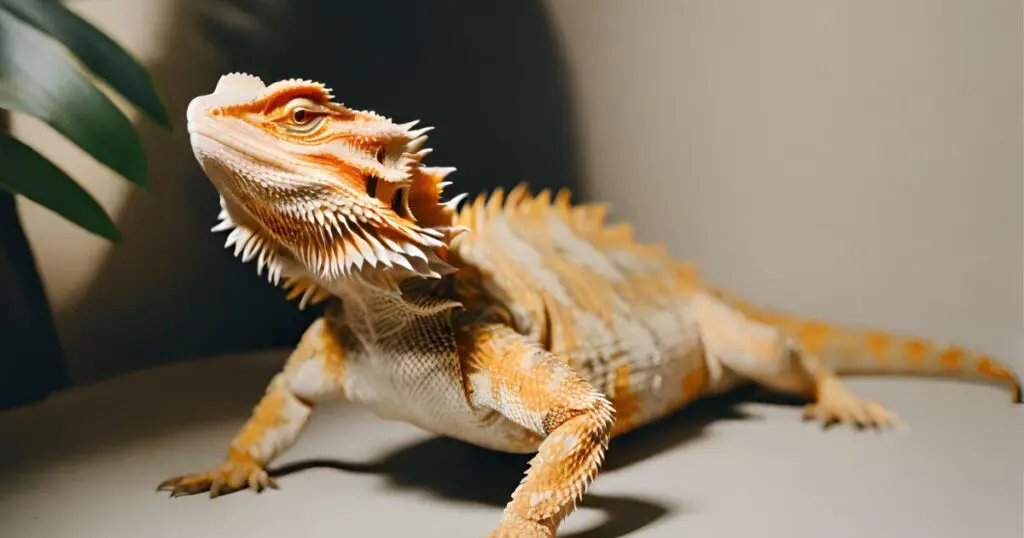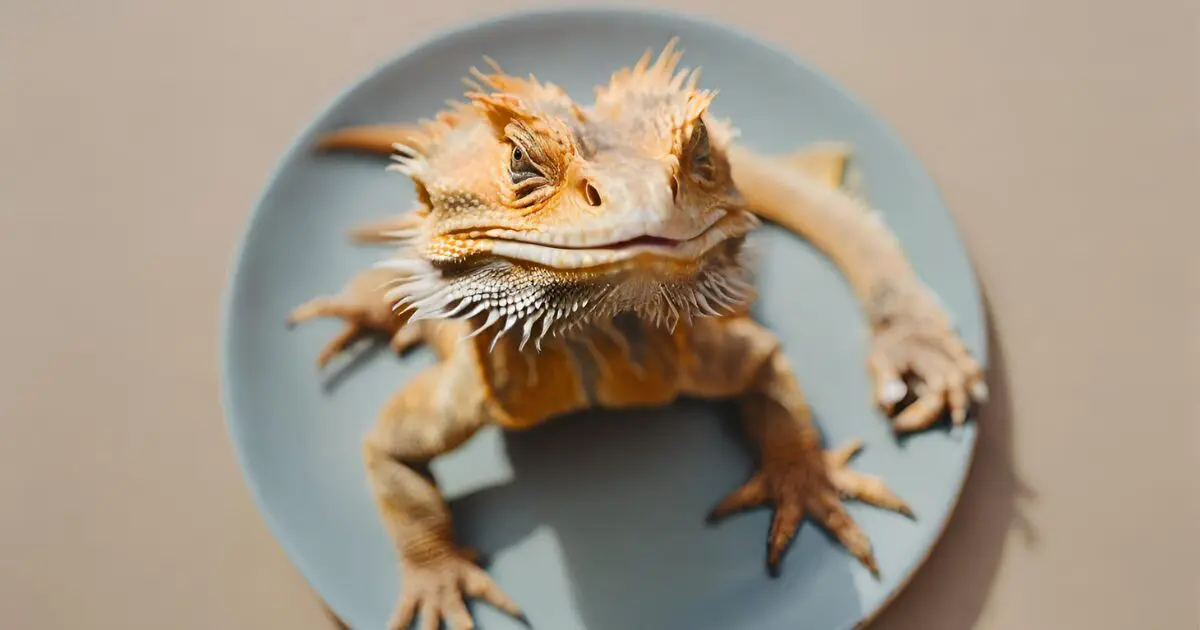As a proud bearded dragon parent, I get asked all the time, “Are bearded dragons edible?” I know, I know, it sounds totally bizarre. But some people out there apparently think you can throw beardies on the BBQ machine.
The short answer is yes; technically, you can eat a bearded dragon. Their meat is edible. However, just because you can eat my beardie doesn’t mean you should! Beardie meat is super lean and tough – it needs a ton of seasoning and cooking to taste decent. There are also ethical and legal issues around consuming your captive pet reptile.
If you’re still curious about the idea of eating these exotic pets, stick around. I’ll walk through the facts so you can decide for yourself.
Can You Eat Bearded Dragons: What Does Science Say?
“Anything with two legs that’s not a human, anything with four that’s not a table.” It’s an ancient Chinese quote regarding the edibility of different animals.
Scientifically speaking, bearded dragons are perfectly edible animals. Their meat is made of the same proteins, fats, and nutrients found in other animals, like chickens. However, that doesn’t mean they make an ideal food source.
Bearded dragon meat is quite lean and lacks fat. This makes it tough and relatively flavorless. Making beardie meat palatable requires extended cooking times and plenty of seasoning. Even then, the meat may still be rubbery and chewy.
Bearded dragons are not venomous or poisonous. While you can eat cooked bearded dragon meat with no ill effects, many people find the amount of effort involved isn’t worth it. Additionally, properly preparing the meat to avoid contamination and illness poses challenges.
Should You Eat Bearded Dragons: An Ethical Question?
While science shows bearded dragons are technically edible, there are ethical issues. Bearded dragons are a popular pet reptile, forming bonds with their owners. This raises questions about eating animals we consider friends and companions.
As Spike, the bearded dragon’s doting owner, I just can’t fathom cooking up my scaly best friend for dinner. To me, eating Spike would be like eating a dog or cat. I just don’t see reptiles as food! Spike is a member of our family, not a collection of proteins and fats.
It seems like a betrayal of that trust to turn around and eat them. Even if someone doesn’t form a bond with their beardie, these sociable lizards have unique personalities and deserve compassion like all animals. They are not kosher either, just like their reptile brother turtles are not kosher.
Overall, while it is physically possible to eat bearded dragons, doing so is ethically dubious to most people, given their popularity as pets. There are far more ethical meat options available.
Also read: Bearded dragons vs Chameleon.

FAQ
More questions that may have popped up into your curious minds.
Are bearded dragons legally allowed to eat?
There are no laws prohibiting eating bearded dragons in most places. However, some areas may have regulations against consuming captive-bred pets or wild-harvested reptiles.
Can humans eat bearded dragon eggs?
Yes, bearded dragon eggs are edible. However, the eggs are very small, with little nutritional value, and eating them raises ethical issues around consuming captive reptile reproductive material.
Is it safe to kiss a bearded dragon?
No, kissing bearded dragons is not recommended. Their saliva and skin contain bacteria that can transmit salmonella and other diseases to humans. It is best to avoid contact between bearded dragons and the mouth.
Conclusion
Please don’t do that. Beardies might be edible, but they are not necessary. They are not rich in nutrients, and you are not going to get much meat or food out of them either. Cooking them will take much effort, and in return, you get very little. Instead, have them as pets and enjoy their companions. They are intelligent enough to know that you are their friend.
